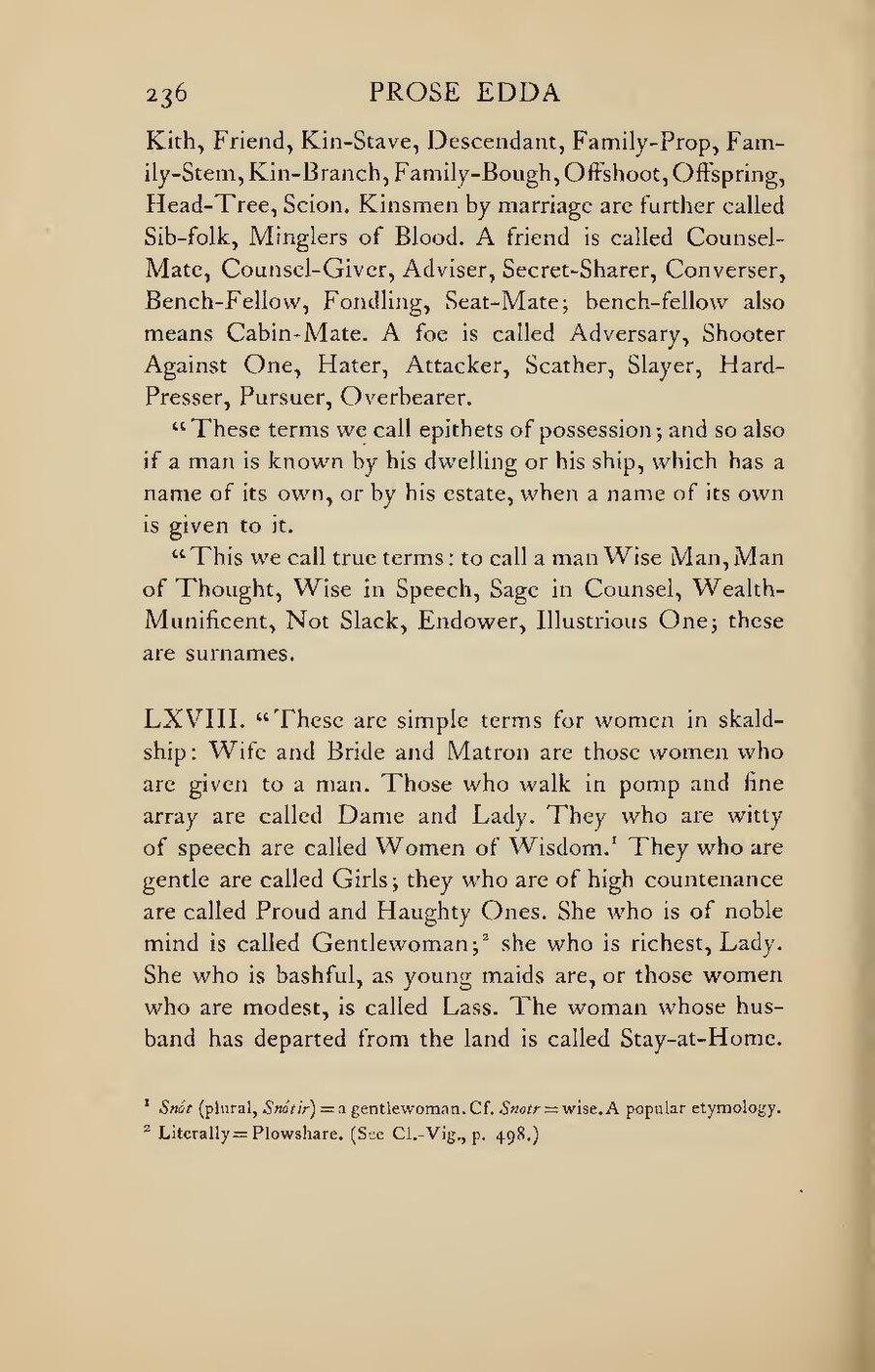Kith, Friend, Kin-Stave, Descendant, Family-Prop, Family-Stem, Kin-Branch, Family-Bough, Offshoot, Offspring, Head-Tree, Scion. Kinsmen by marriage are further called Sib-folk, Minglers of Blood. A friend is called Counsel-Mate, Counsel-Giver, Adviser, Secret-Sharer, Converser, Bench-Fellow, Fondling, Seat-Mate; bench-fellow also means Cabin-Mate. A foe is called Adversary, Shooter Against One, Hater, Attacker, Scather, Slayer, Hard Presser, Pursuer, Overbearer.
"These terms we call epithets of possession; and so also if a man is known by his dwelling or his ship, which has a name of its own, or by his estate, when a name of its own is given to it.
"This we call true terms: to call a man Wise Man, Man of Thought, Wise in Speech, Sage in Counsel, Wealth Munificent, Not Slack, Endower, Illustrious One; these are surnames.
LXVIII. "These are simple terms for women in skald ship: Wife and Bride and Matron are those women who are given to a man. Those who walk in pomp and fine array are called Dame and Lady. They who are witty of speech are called Women of Wisdom.[1] They who are gentle are called Girls; they who are of high countenance are called Proud and Haughty Ones. She who is of noble mind is called Gentlewoman;[2] she who is richest, Lady. She who is bashful, as young -maids are, or those women who are modest, is called Lass. The woman whose husband has departed from the land is called Stay-at-Home.
